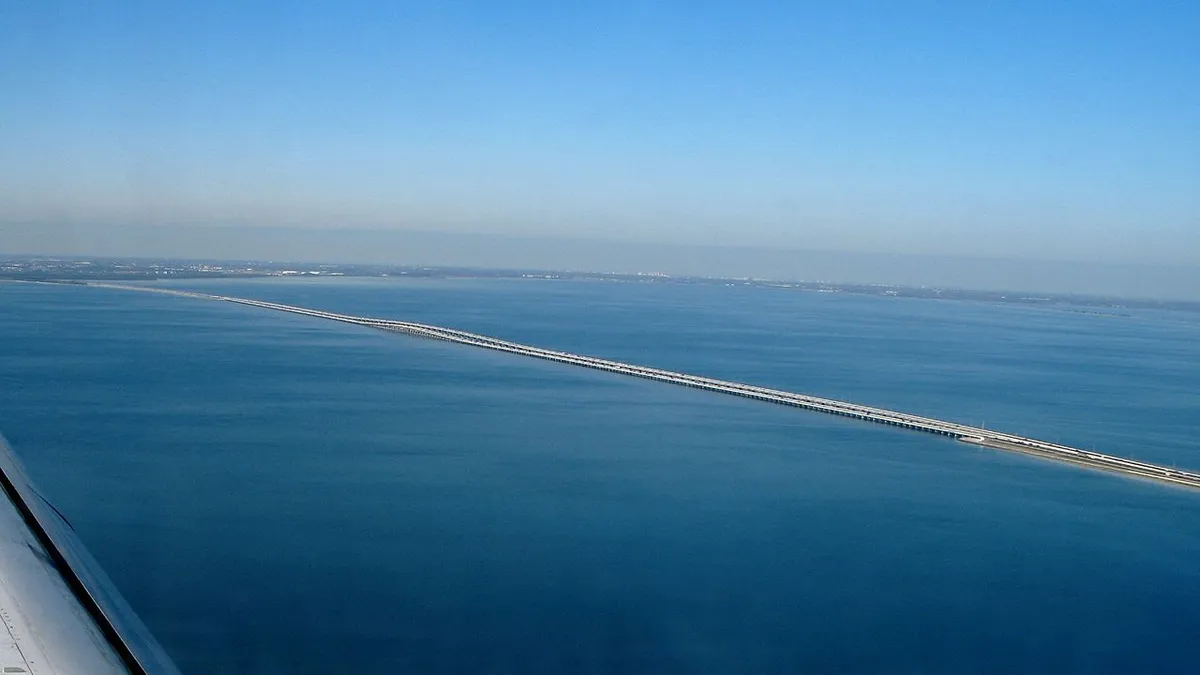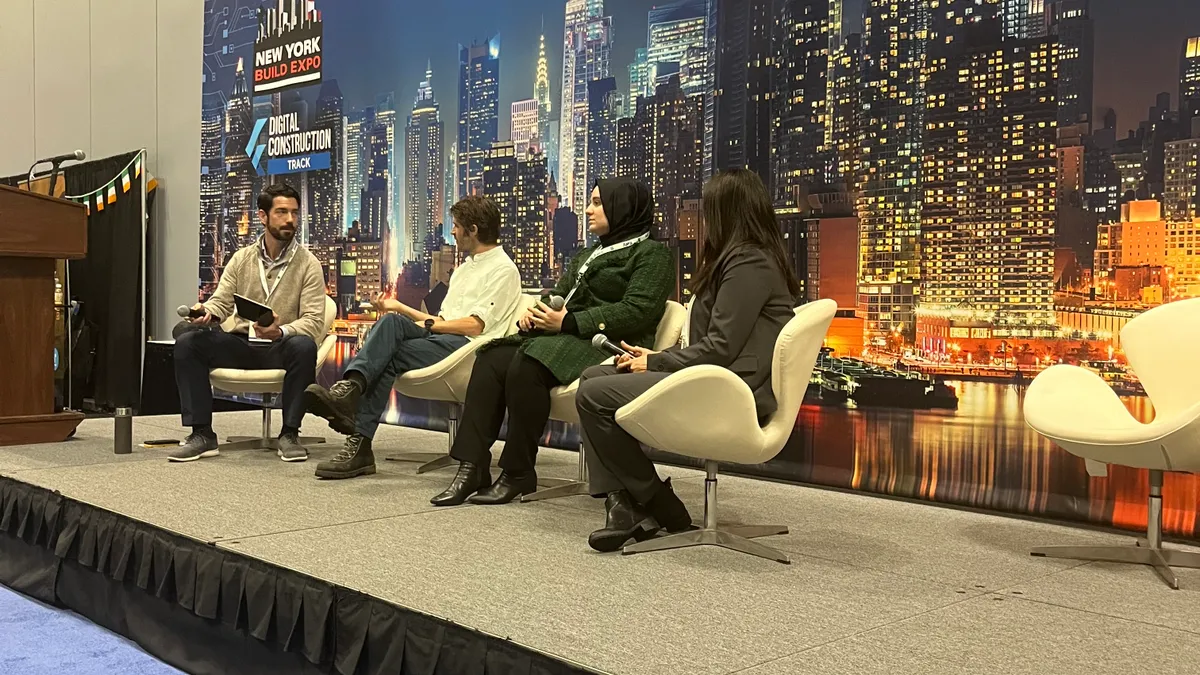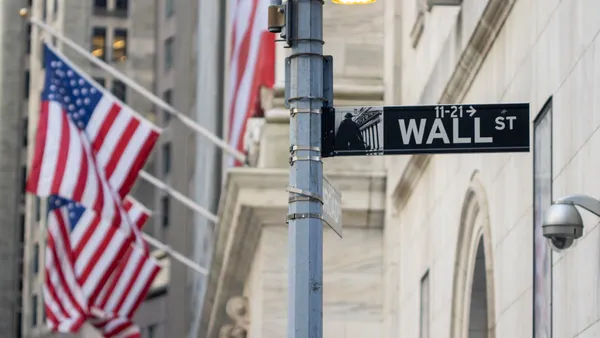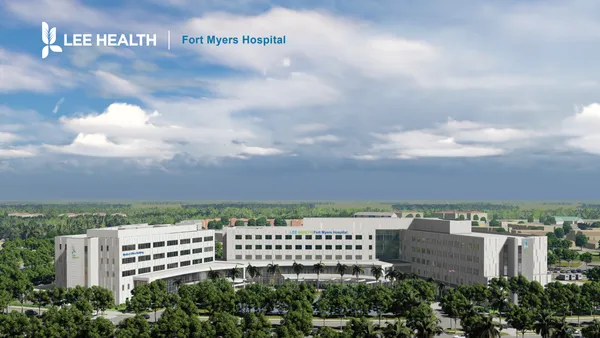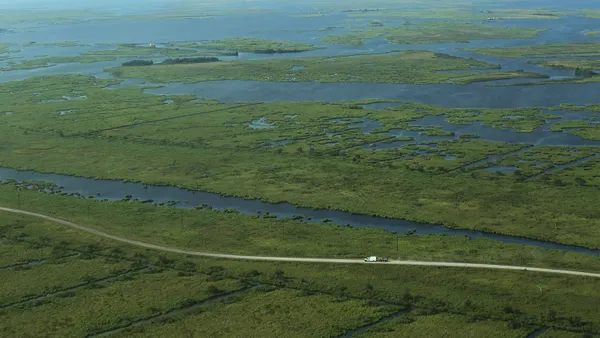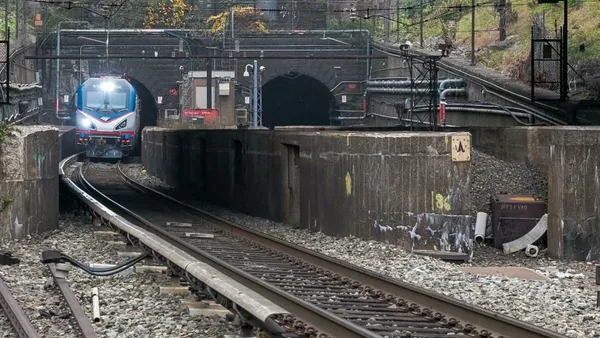UPDATE: April 14, 2020: During an April 11 briefing Florida Gov. Ron DeSantis announced that the state DOT has added the $2.3 billion I-4 Ultimate project in Orlando to the list of transportation infrastructure projects that will be accelerated during the COVID-19 shutdown.
DeSantis said Transportation Secretary Kevin Thibault and the FDOT have been working with the public-private partnership concessionaire I-4 Mobility Partners to identify several sections of the 21-mile reconstruction project that will be completed one to two months sooner.
The primary goal of this effort, he said, is to complete the main travel lanes through the downtown corridor and enable crews to add new connections to major access points. Being able to increase work hours by blocking off additional lanes and closing some less-traveled roads in the short term will minimize conflicts, improve safety and allow for a more productive construction process. Florida taxpayers will not have to contribute any additional money for the acceleration.
"I'm very aware," DeSantis said, "of the importance that I-4 plays in the moving of people and goods through the region, and I'm looking forward to this project being completed as soon as possible."
Dive Brief:
- In an effort to lessen the economic fallout from the coronavirus pandemic and to take advantage of fewer vehicles on the road during a 30-day stay-at-home order, Florida Gov. Ron DeSantis has ordered the state DOT to accelerate $2.1 billion of transportation projects.
- In an April 1 briefing, DeSantis said the state is moving up construction on the $865 million Howard Frankland Bridge project between Tampa and St. Petersburg by four weeks; a road widening project in Palm Beach County by three months; the $802 million I-395/SR 836/I-95 design-build project in Miami by four weeks; and a project near International Drive and Universal Boulevard in Orlando by four to six weeks.
- Given the lighter traffic on Florida roads right now, crews will be able to work long shifts and shut down more lanes, DeSantis said, which will allow contractors to make more progress than they would if they had to deal with the normal volume of vehicles on the road.
Dive Insight:
Continued work on transportation-related infrastructure projects is deemed an essential activity under the Florida stay-at-home order issued last week, along with residential construction, utility projects and other construction projects related to vital functions. Material suppliers that support essential construction activities are also allowed to continue to operate.
When asked a question about DOT worker safety, DeSantis said that as long as workers are not "on top of each other," the outside work can be done safely and that the Florida DOT is mindful of the situation.
The FDOT selected the joint venture of Archer Western Construction and Traylor Bros. to design and build a new span connecting Tampa and St. Petersburg over Old Tampa Bay. The six-year project will see construction of a new bridge north of the current southbound-westbound span. The new bridge will have four general use lanes, two northbound-eastbound express lanes, two southbound-westbound express lanes and a bicycle and pedestrian path. The existing southbound-westbound span will be converted to a new northbound-eastbound segment of I-275, while the current northbound-eastbound span will be demolished.
The I-395/SR 836/I-95 project includes a signature bridge, and the FDOT selected Archer Western-de Moya Group (AWD) to perform the work in 2017. There was a local outcry about the decision because a community panel selected another contractor and its design, which was submitted by a Fluor-led joint venture. The disagreement about which contractor should be awarded the job ended up in court, and AWD was allowed to move forward as the winner in May 2018. The Fluor team included Munilla Construction Management and FIGG Bridge Engineers. Munilla and FIGG were the contractor and engineer, respectively, for the Florida International University pedestrian bridge, which collapsed in March 2018.


